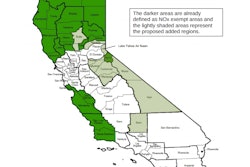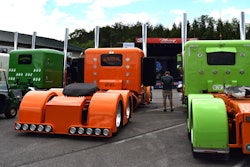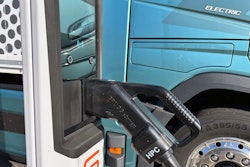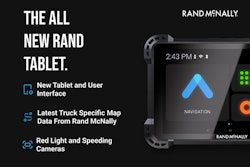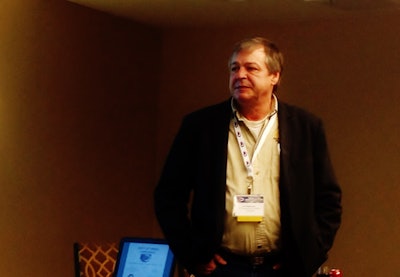
CARB’s got EPA blessing, of course, to enforce its powertrain, idling, and box-trailer/tire requirements today, in the last case a very recently acquired go-ahead, as we’ve reported. CCTA’s appeal has been years in the waiting — lord only knows how long OOIDA’s might take. Meantime, as Rajkovaz says in the podcast, the rules “go hard-fast.” Take a listen:
As at last year’s NASTC meeting, joining Rajkovacz in the CARB-issues-devoted session was Sean Edgar of the CleanFleets CARB compliance assistance organization, who updated attendees on deadlines coming into play at yearend.
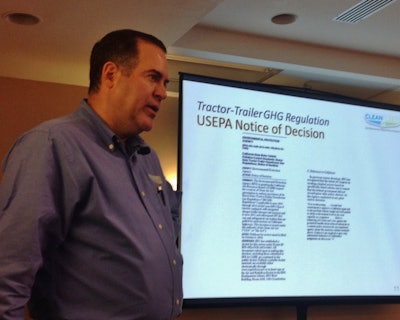
Reefer engines in operation in California newly covered by the TRU rule at the end of the year will include 2007 model year units, which must meet the Ultra-Low-Emission TRU In-Use Performance Standard.
For the primary truck powertrain, pre-1994 on-highway diesel engines will effectively not be authorized to operate on California roadways as of January 1. The owners of those trucks are not able to apply for the economic hardship extension, either. Only owners of 1996 or newer powertrains can do so, an option through the end of the December if the owner’s reported to CARB as a part of the so-called “Good Faith Efforts” of late last year, among other requirements
That hardship extension stems from the loan-denial proposal CARB was considering during the round of talks over potential new compliance flexibility options early this year and late last year. As I’ve written before (when the extension was proposed and eventually adopted), as Rajkovacz sees it the hoops applicants have to jump through in order to get it are particularly onerous.

